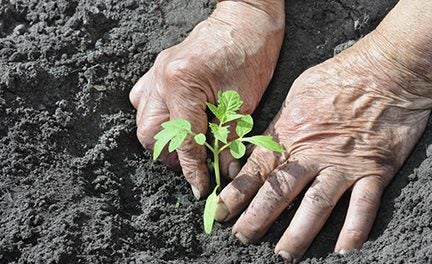Beginning Farmers Interview: Cornell Small Farms Program

The following interview with Erica Frenay of the Cornell Small Farms Program is the first in a series of interviews with organizations that provide services to beginning farmers. Cornell Small Farms Program was a 2015 recipient of a Beginning Farmer and Rancher Development Program (BFRDP) Grant, and continues to provide many valuable services to beginning farmers around the country including their popular video series, and beginning farmer online course series.
Beginning Farmers: Please introduce yourself, and tell us what your role is with the organization.
Erica: I’m Erica Frenay, and my role within the Cornell Small Farms Program is to manage the online courses we offer for beginning farmers.
Beginning Farmers: Can you tell us a little bit about the Small Farms Program?
Erica: The Cornell Small Farms Program (SFP) was created to provide a voice and support for small farms in New York State, which by the USDA definition (farms grossing <$250K/year), means that small farms comprise 92% of farms in NY. SFP helps farmers get expert assistance to facilitate all phases of small farm business development, from initial growth to optimization to maturity. To accomplish this work, we collaborate with farmers and agricultural educators to deliver educational materials, online courses and on-the-ground training; elevate valuable resources to make them widely available and broaden their impact; develop new information sources and decision support tools; respond to inquiries with high quality information and useful referrals; anticipate emerging needs of small farms by creating forums for exchanging opportunities and challenges; and connect farmers with CALS research and extension initiatives.
We are a part of Cornell University, housed in the College of Agriculture and Life Sciences, but our work would not be possible without our close collaborations with Cornell Cooperative Extension. CCE educators teach our online courses, serve on committees to help inform priorities, work with us to develop new information sources, and help us serve small and beginning farms across the whole state.
While our focus is on NYS, we have online course students from all across the country and from around the world. And we have built a Northeast-wide network of organizations serving beginning farmers that provides a forum for sharing skills and information about how to support farm start-up across the region.
Beginning Farmers: What programs do you offer for young, beginning, and small farmers? How can people take advantage of those programs?
Erica: The primary offering we have for this audience is our online courses. We offer nearly 2 dozen instructor-led, 6-week-long courses in everything from writing a business plan to raising berries. We have intro-level courses for those just exploring the idea of starting a farm and more advanced courses for people already farming but looking to deepen their skills.
Other programs are generally grant-funded, so they change over time. We have an initiative currently to support military veterans seeking to farm in NY. This includes partnering with other organizations to offer special events, like an intensive week-long training called Armed to Farm. We have also just finished accepting applicants into a program called “Beginning Farmer Profit Teams”, targeted to people who have been farming for 3-8 years, and providing them a small amount of funds to hire consultants to help them troubleshoot profitability issues on their farms.
We offer a lot of other information to beginning and small farms, but none of it in the form of a program. We have helpful publications with succinct fact sheets on starting and running a farm, as well as demystifying meat processing and marketing regulations. We also have a popular YouTube channel with many detailed videos on various aspects of how successful farms do what they do. We have an events calendar and bi-monthly e-newsletter, as well as Facebook pages and Twitter feed to help farmers know what’s going on and get connected to networks to support their continued learning.
Beginning Farmers: What is your vision of the future for beginning farmers in your area? What are you hopeful about?
Erica: We envision a future where diverse and vibrant urban and rural farms build human capacity, revitalize communities, supply regional food systems, and foster ecological resilience in a changing world.
I am bolstered by the numbers of smart, competent people starting farm businesses, and the fact that many of these people are well-trained and tapped into the extensive support networks that exist to help them. I’m also hopeful about the trend toward scaling up local food beyond niche markets, getting these great via food hubs and value-chain wholesale outlets that allow farms to sell wholesale and still make money.
Beginning Farmers: What programs do you have upcoming? How can people get in contact with you?
Erica: We take a break from online courses during the Summer, but registration for all Fall, Winter and Spring courses will open in mid-August. There is also an offering of the Armed to Farm intensive training coming up in August for veterans seeking to farm. People can reach me at ejf5@cornell.edu. People interested in our military veteran programs should contact Matt Weiss at mw84@cornell.edu. We encourage everyone to visit smallfarms.cornell.edu and our sister site nebeginningfarmers.org and to like our pages on Facebook (Cornell Small Farms Program and Northeast Beginning Farmers Project).





 Your Privacy Choices
Your Privacy Choices
Leave a comment